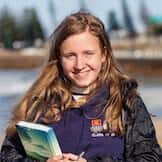Entering Mustafaa’s home, it would be incredibly difficult to guess the hardships this family has endured. Originally from Aleppo in Syria, they arrived in Manchester, UK a little over a year ago and moved from there to North Yorkshire, UK. Greeting me warmly with a smile, Mustafaa’s children and wife gather behind him, all eager to say hello. The rich aroma of traditional Syrian cooking fills the home, making it clear that, as far as they are concerned, the top priority of my visit is to be introduced to their culture. The family appear grateful that I am visiting, and for that reason alone, I feel humbled.
I enter the room and remove my shoes. Before I even have the chance to ask where to put them, Mustafaa’s eldest daughter has them tidied away. We gather on the floor, as Mustafaa’s wife places food carefully in front of us. She is quiet and speaks mainly in Arabic to the children, taking immense pride in her cooking. Mustafaa’s five children are calm and patient. They wait, allowing the adults to get what they want first, and have the politeness and demeanour of grown adults. With the help of her brother, she explains the names of the food that we are eating. Muhamarch is a flour based mix, baked with red pepper, onion and tomato. Baba ghunuj is aubergine, yoghurt and garlic mixed with olive oil. Their grasp of the English language is outstanding, as they flip between English and Arabic. It is hard to believe they have only been in England a year.
Mustafaa’s eldest son shows me his academic report, his first from secondary school. It reflects a hard-working, intelligent young boy and it is immediately obvious where the children get their determination. Their father has been learning both written and spoken English through the local college Harrogate. He’s passed into level three quickly and speaks of resuming his trade as a construction worker as quickly as he can. It is devastatingly obvious, however, how much he misses his home country, and how much the war has affected him.
The family fled from Aleppo to nearby Lebanon, where Mustafaa worked for two years in construction. They were happy initially as they felt safer in Lebanon, but new problems soon arose. With tensions mounting for the Syrian people, the family struggled to rent their home, gain work or even to let their children play outside. Mustafaa speaks of these times sadly stating, ‘I am Syrian, but I am human.’ He was anxious to find a better life for his family.
Speaking of his time back in Syria, he recalled when Aleppo was bombed. His youngest son sometimes struggles with breathing difficulties as a consequence, had to be rushed to the hospital when they arrived in Lebanon. Yet the hospital refused to treat the young boy, despite his difficulties becoming life-threatening. Gold needed to change hands, but in the family’s panic, they had not brought anything with them. A person outside who had heard the family’s plight saved them. Mustafaa said, ‘I don’t know him but he was human. He told the doctor they weren’t doctors but animals. He knew my son was going to die if they didn’t treat him.’ He paid the money, and shortly after the family continued their journey to the UK.
With the appeal of a safe haven, Mustafaa was determined to reach the United Kingdom. By mid-2015, there were 117,234 refugees, 37,829 pending asylum cases and 16 stateless persons in the country. Yet this accounts for less than a quarter of the population, and according to statistics found by the Guardian, integration is harder in rural areas. Mustafaa and his family, despite initially arriving in Manchester were some of the first to arrive in North Yorkshire.
Yet Mustafaa and his family have embraced all the challenges thrown their way. The children have settled in well to their schools and already feel like a part of the community. Having gained friends, and continually learning English, the family welcomed their youngest daughter at the local hospital. He said, ‘On my first day here, I wanted to get to a safer place for my children. I couldn’t understand people in the street – I decided I want to know English and to understand English. I told myself I can’t sit at home. I can’t imagine my life without work. The Syrian people, we like to work.’
Now, Mustafaa has achieved his goal of understanding English, and once he has the certification to prove it, he will be looking to return to construction work. He lives a very different life to the one he once had, but he is determined to make it count.


